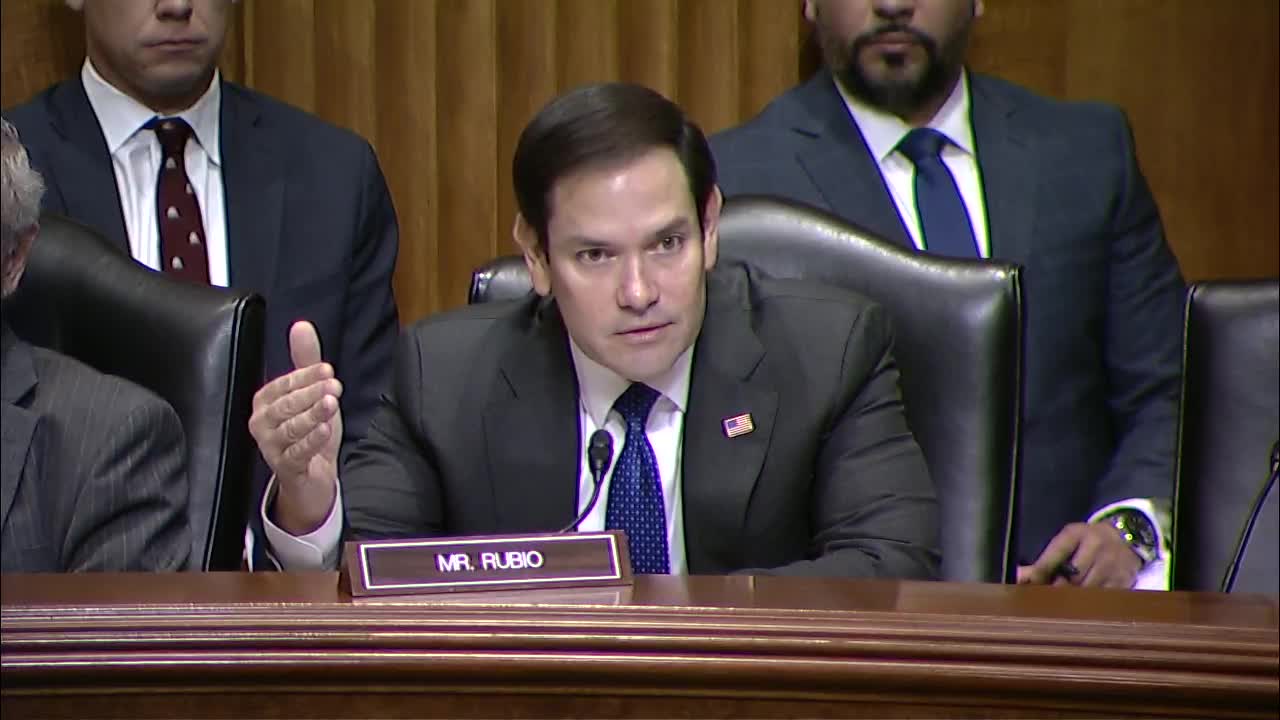US Must Boost Naval Power to Compete with China
July 30, 2024 | Foreign Relations: Senate Committee, Standing Committees - House & Senate, Congressional Hearings Compilation, Legislative, Federal
This article was created by AI summarizing key points discussed. AI makes mistakes, so for full details and context, please refer to the video of the full meeting. Please report any errors so we can fix them. Report an error »

In a recent government meeting, key officials discussed the strategic implications of China's dominance in critical industrial sectors, particularly shipbuilding and basic materials like steel and cement. The conversation highlighted the importance of these industries not only for military power but also for commercial influence, emphasizing that the U.S. must bolster its own industrial capabilities to maintain its status as a global naval power.
Officials noted that China is currently the world's leading shipbuilder, constructing a range of vessels from aircraft carriers to LNG ships. This dominance poses a significant challenge to U.S. interests, as the ability to project power—both militarily and commercially—hinges on a robust industrial base. The discussion underscored the need for the U.S. to collaborate with allies to protect non-Chinese sources of these essential materials and capabilities.
The meeting also touched on the complexities of U.S.-China interdependence, with officials acknowledging the difficulty of decoupling economies without harming domestic interests. The need for a strategic approach to naval shipbuilding was emphasized, particularly in light of the U.S. submarine program, which officials described as a critical asset that requires urgent investment and innovation.
Additionally, the conversation shifted to the implications of China's export of surveillance technologies and authoritarian governance models to various countries. Officials expressed concern over China's influence in regions like Africa and Latin America, where it supports authoritarian regimes through technological and financial means. The U.S. is challenged to present a compelling alternative that promotes democratic governance and human rights.
The dialogue concluded with a recognition of the potential pitfalls of China's Belt and Road Initiative, which some officials characterized as a form of overreach that could be leveraged to the U.S.'s advantage. The meeting highlighted the urgent need for a comprehensive strategy to address these multifaceted challenges posed by China's growing global influence.
Officials noted that China is currently the world's leading shipbuilder, constructing a range of vessels from aircraft carriers to LNG ships. This dominance poses a significant challenge to U.S. interests, as the ability to project power—both militarily and commercially—hinges on a robust industrial base. The discussion underscored the need for the U.S. to collaborate with allies to protect non-Chinese sources of these essential materials and capabilities.
The meeting also touched on the complexities of U.S.-China interdependence, with officials acknowledging the difficulty of decoupling economies without harming domestic interests. The need for a strategic approach to naval shipbuilding was emphasized, particularly in light of the U.S. submarine program, which officials described as a critical asset that requires urgent investment and innovation.
Additionally, the conversation shifted to the implications of China's export of surveillance technologies and authoritarian governance models to various countries. Officials expressed concern over China's influence in regions like Africa and Latin America, where it supports authoritarian regimes through technological and financial means. The U.S. is challenged to present a compelling alternative that promotes democratic governance and human rights.
The dialogue concluded with a recognition of the potential pitfalls of China's Belt and Road Initiative, which some officials characterized as a form of overreach that could be leveraged to the U.S.'s advantage. The meeting highlighted the urgent need for a comprehensive strategy to address these multifaceted challenges posed by China's growing global influence.
Don't Miss a Word: See the Full Meeting!
Go beyond summaries. Unlock every video, transcript, and key insight with a Founder Membership.
✓
Get instant access to full meeting videos
✓
Search and clip any phrase from complete transcripts
✓
Receive AI-powered summaries & custom alerts
✓
Enjoy lifetime, unrestricted access to government data
30-day money-back guarantee
